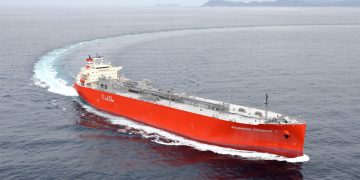The sinking of the Belize-flagged, Lebanese-operated bulk carrier Rubymar off the coast of Yemen poses significant environmental risks following a Houthi missile attack.
The ship, carrying 21,000 metric tonnes of ammonium phosphate sulphate fertiliser, had been taking on water since the missile strike on February 18. As the Guardian reports, The sinking threatens to release leaking fuel and chemical pollutants, potentially harming marine life, coral reefs, and coastal communities dependent on fishing.
“The recent sinking of the vessel #Rubymar represents an additional risk for the environment and maritime security. We are in contact with the Government of Yemen and other @UN organizations to provide necessary assistance,” said IMO Secretary-General. https://t.co/O9Zq2Z1707 pic.twitter.com/pvlwP5knBZ
— IMO (@IMOHQ) March 4, 2024
According to the Guardian, Yemeni authorities, including the environmental protection agency and transport minister, have expressed concerns about a “double pollution” effect, estimating over 200 tonnes of fuel oil on board and highlighting the soluble nature of the fertiliser, which could harm marine organisms and ecosystems.
Plans to tow the vessel failed as port authorities in Aden, Djibouti, and Saudi Arabia refused to receive the ship due to fears of an environmental disaster. Alas, without immediate action, the situation could escalate into a major environmental crisis, warns Greenpeace.
The responsibility for the Rubymar remains unclear, with conflicting information about its registration in Britain or the Marshall Islands provided by different sources, including Centcom and the maritime security firm Ambrey, Guardian informs.




























































